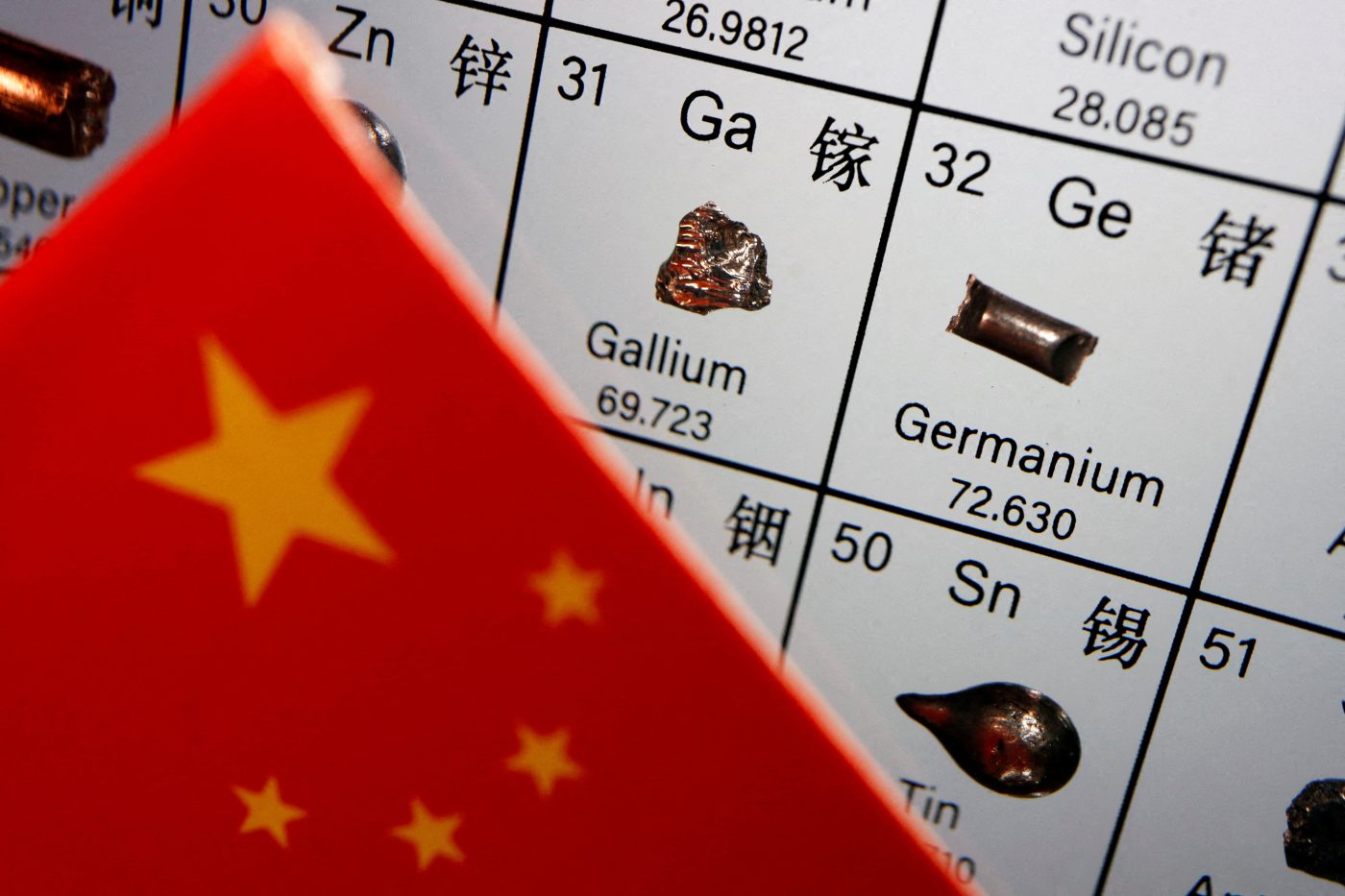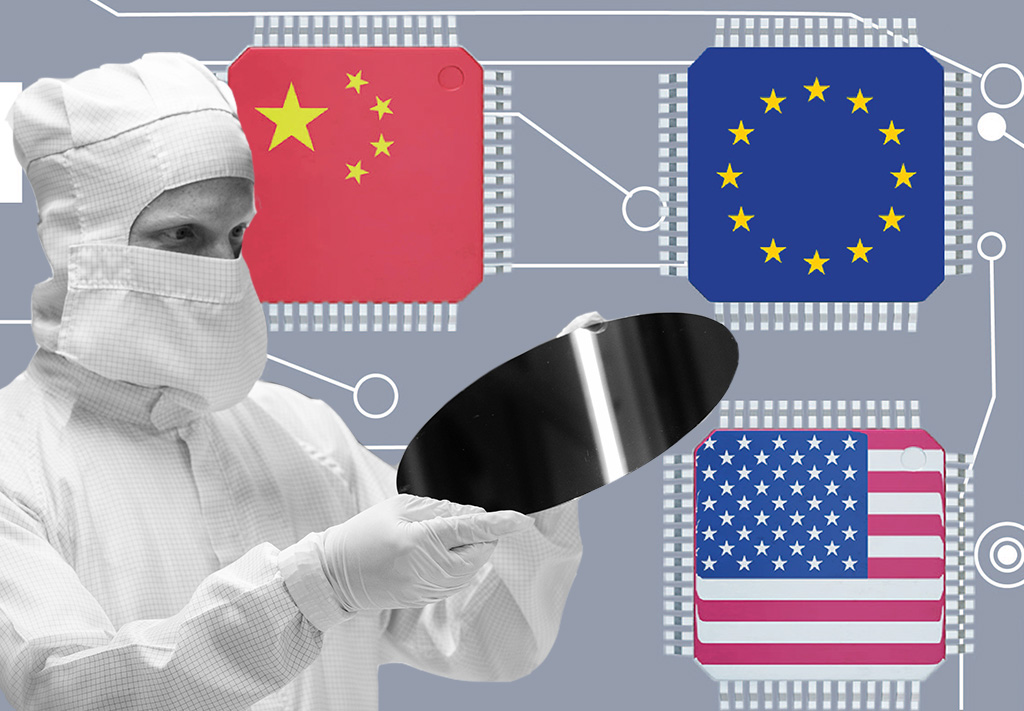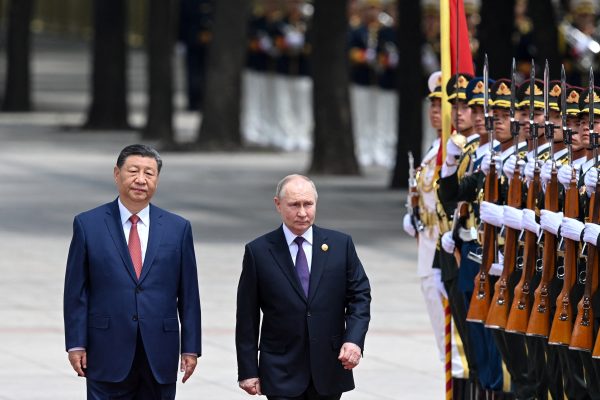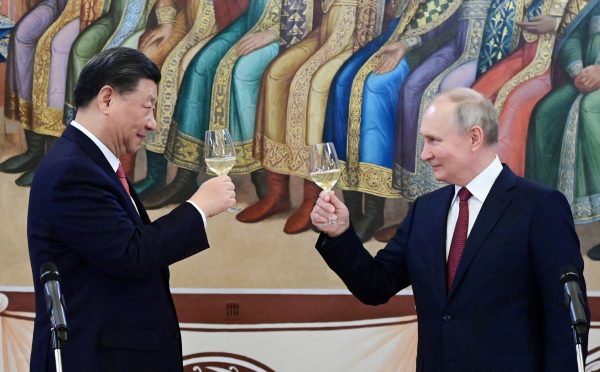It’s retaliation. Under restrictions on exports of rare metals used in semiconductor manufacturing that came into effect at the beginning of August, exporters of gallium and germanium will need to get a license to ship the metals.
Beijing cites national security. China and the US have been locked in a technology trade war, with Washington imposing sweeping export restrictions to cut China off from key technology to manufacture semiconductors, or “chips.”
Western chipmakers have issued statements intended to calm the markets. Sufficient stocks mean that Chinese restrictions pose no immediate threat to their business. In the long term, though, the West should be worried: China enjoys a near-monopoly on the two minerals, geranium and gallium.
The two minerals are key to semiconductor production. When Bell Labs developed the transistor in the 1950s, germanium was the original element. Although silicon later replaced it for the high-density integrated circuits we know today as “chips,” germanium still is used in critical applications such as thermal imaging cameras, solar panels, and fiber optics for telecommunications.
Gallium is crucial for manufacturing the gallium arsenide chemical compound, which can make radio frequency chips for mobile phones and satellite communication. Semiconductor junctions made with gallium arsenide can operate at higher frequencies and temperatures than silicon. They also produce less noise than silicon devices, especially at high operating frequencies, making them useful in radars and radio communication devices, satellites, and LEDs.
China produces about 98% of the world’s gallium, and controls 68% of global refined germanium production in various countries, mainly in southeast Asia, according to the US Geological Survey. Beijing took advantage of a 2012-17 global surplus of primary gallium and used subsidies to undercut international competitors to develop its near-monopoly.
Gallium production outside China has become economically unviable. European and American producers are struggling. Germany’s AOS aluminum oxid filed for bankruptcy in 2016. Western gallium facilities have shuttered, and Chinese companies have taken control of germanium production in Southeast Asia.
Western industry so far is downplaying the impact of Chinese sanctions. Like others, Intel issued a standard statement, saying, “Our strategy of having a diverse, global supply chain minimizes our risk to local changes and interruptions.” Japan’s Mitsubishi and Sumitomo stated that they have sufficient stocks.
The world’s largest semiconductor foundry company by market share, Taiwan Semiconductor, also downplayed the short-term impact. Even Taiwanese companies such as AWSC, Win Foundry, and VPEC, specializing in gallium arsenide and nitride semiconductors, claim that their business will be unaffected.
Their confidence seems complacent. Japan imports 60% of its gallium, with 70% of this coming from China. Customers are worried, starting with the car companies that were hit hard by the chip shortage during the Covid pandemic. German auto-maker Volkswagen said it was “ready to take measures together with its partners if necessary.” The Chairman of France’s Renault warned of a “Chinese Storm” to come.
Strong action is required. Gallium facilities in the West must be encouraged to restart production. Available raw geranium and gallium in the US and its allies remain under-exploited, although Australia, for one, has taken some important recent initiatives.
Germanium is a by-product of zinc and copper refining. Western governments should support zinc and copper mines with tax incentives to make gallium extraction profitable. Companies should move to use by-products of zinc smelting from countries outside Chinese influence. Japan’s DOWA Metals and Mining Company is using zinc by-products imported from Mexico.
Chinese control of germanium production in southeast Asia must be loosened. Sanctions should be imposed on Chinese companies that control bauxite refining in Southeast Asia – with the aim of forcing them to relinquish ownership. Bauxite refining is essential for the production of gallium. Australia has already blocked further Chinese investment in its lithium sector by itself.
Success is far from assured. After China announced its export restrictions, the EU began urgently asking local producers if they can manufacture gallium and germanium. But the energy crisis unleashed by the need to stop using Russian gas has forced European aluminum and zinc smelters to curtail or halt operations.
This leaves the West with no choice except to work together, as proposed for export restrictions. Let’s hope the allies put nationalism aside and manage to avoid a counterproductive rush to keep their own geranium and gallium supplies to themselves. For the West to win the escalating global chip war, Beijing must not be allowed to divide countries and conquer markets.
Christopher Cytera CEng MIET is a Non-resident senior fellow with the Digital Innovation Initiative at the Center for European Policy Analysis and a technology business executive with over 30 years of experience in semiconductors, electronics, communications, video, and imaging
Bandwidth is CEPA’s online journal dedicated to advancing transatlantic cooperation on tech policy. All opinions are those of the author and do not necessarily represent the position or views of the institutions they represent or the Center for European Policy Analysis.





